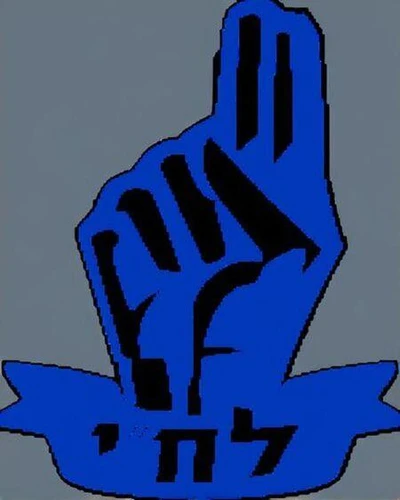how Jewish Terrorist created the state of Israel
Par :Formats :
Disponible dans votre compte client Decitre ou Furet du Nord dès validation de votre commande. Le format ePub est :
- Compatible avec une lecture sur My Vivlio (smartphone, tablette, ordinateur)
- Compatible avec une lecture sur liseuses Vivlio
- Pour les liseuses autres que Vivlio, vous devez utiliser le logiciel Adobe Digital Edition. Non compatible avec la lecture sur les liseuses Kindle, Remarkable et Sony
 , qui est-ce ?
, qui est-ce ?Notre partenaire de plateforme de lecture numérique où vous retrouverez l'ensemble de vos ebooks gratuitement
Pour en savoir plus sur nos ebooks, consultez notre aide en ligne ici
- FormatePub
- ISBN8230099260
- EAN9798230099260
- Date de parution25/10/2024
- Protection num.pas de protection
- Infos supplémentairesepub
- ÉditeurIndependently Published
Résumé
The creation of the state of Israel was deeply intertwined with the use of militant tactics and terrorism, a legacy that continues to shape the region today. From 1917 to 1949, Zionist groups like Irgun, Lehi, and Haganah engaged in violent resistance against British authorities and Palestinian Arabs. These groups, through bombings, assassinations, and military operations, hastened the end of British control and secured vital territories for the emerging Jewish state.
While their actions contributed to the establishment of Israel, they also displaced many Palestinians, laying the groundwork for a conflict that endures to this day. The foundation of Israel, built in part on campaigns of militancy, has had lasting effects on the Israeli Palestinian conflict. The tactics used by these groups, and their broader consequences, continue to influence the policies, attitudes, and narratives in the region.
Today, the legacy of violence and resistance that marked Israel's early formation persists, creating an ongoing cycle of conflict and retaliation that complicates efforts toward lasting peace. The roots of modern tensions are firmly embedded in the historical events that shaped Israel's creation, with their echoes still felt in contemporary Israeli and Palestinian society.
While their actions contributed to the establishment of Israel, they also displaced many Palestinians, laying the groundwork for a conflict that endures to this day. The foundation of Israel, built in part on campaigns of militancy, has had lasting effects on the Israeli Palestinian conflict. The tactics used by these groups, and their broader consequences, continue to influence the policies, attitudes, and narratives in the region.
Today, the legacy of violence and resistance that marked Israel's early formation persists, creating an ongoing cycle of conflict and retaliation that complicates efforts toward lasting peace. The roots of modern tensions are firmly embedded in the historical events that shaped Israel's creation, with their echoes still felt in contemporary Israeli and Palestinian society.
The creation of the state of Israel was deeply intertwined with the use of militant tactics and terrorism, a legacy that continues to shape the region today. From 1917 to 1949, Zionist groups like Irgun, Lehi, and Haganah engaged in violent resistance against British authorities and Palestinian Arabs. These groups, through bombings, assassinations, and military operations, hastened the end of British control and secured vital territories for the emerging Jewish state.
While their actions contributed to the establishment of Israel, they also displaced many Palestinians, laying the groundwork for a conflict that endures to this day. The foundation of Israel, built in part on campaigns of militancy, has had lasting effects on the Israeli Palestinian conflict. The tactics used by these groups, and their broader consequences, continue to influence the policies, attitudes, and narratives in the region.
Today, the legacy of violence and resistance that marked Israel's early formation persists, creating an ongoing cycle of conflict and retaliation that complicates efforts toward lasting peace. The roots of modern tensions are firmly embedded in the historical events that shaped Israel's creation, with their echoes still felt in contemporary Israeli and Palestinian society.
While their actions contributed to the establishment of Israel, they also displaced many Palestinians, laying the groundwork for a conflict that endures to this day. The foundation of Israel, built in part on campaigns of militancy, has had lasting effects on the Israeli Palestinian conflict. The tactics used by these groups, and their broader consequences, continue to influence the policies, attitudes, and narratives in the region.
Today, the legacy of violence and resistance that marked Israel's early formation persists, creating an ongoing cycle of conflict and retaliation that complicates efforts toward lasting peace. The roots of modern tensions are firmly embedded in the historical events that shaped Israel's creation, with their echoes still felt in contemporary Israeli and Palestinian society.



